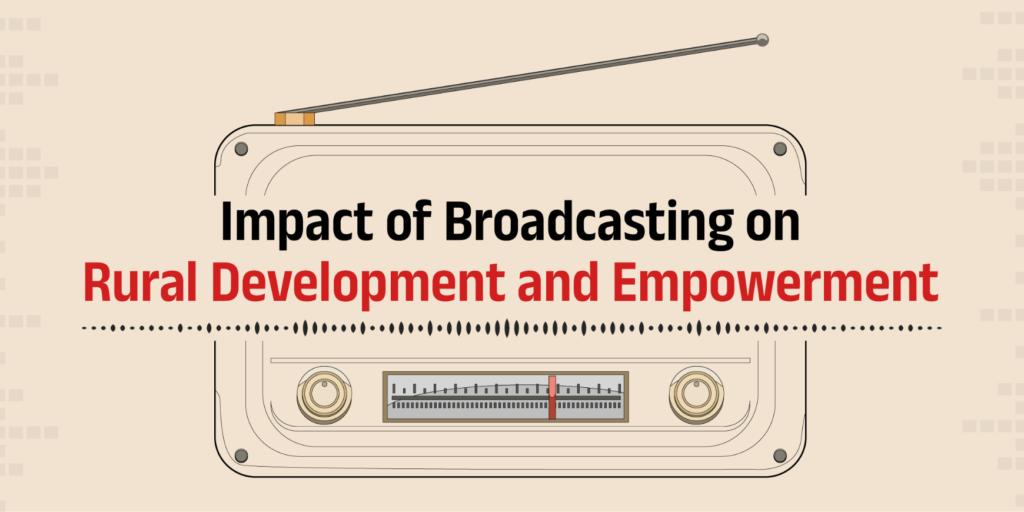Broadcasting has the potential to significantly impact rural development and empowerment in several ways. Here are some of the key areas where broadcasting can play a positive role:
Access to Information: One of the primary benefits of broadcasting is that it helps disseminate information to remote and rural areas. Access to relevant and timely information about government schemes, agricultural practices, healthcare, education, and other services can empower rural communities to make informed decisions and improve their quality of life.
Educational Opportunities: Broadcasting can bring educational content directly to rural communities. This includes programs that teach basic literacy, numeracy, vocational skills, and specialized knowledge. Access to education can open up new opportunities for individuals, leading to economic growth and development in rural areas.
Agricultural Extension Services: Broadcasting can be an effective platform for providing agricultural extension services. Farmers can receive guidance on best practices, weather updates, market prices, and new technologies, which can enhance agricultural productivity and income.
Health Awareness and Services: Radio and television broadcasts can be used to promote health awareness, sanitation practices, and preventive measures against diseases. Additionally, broadcasting can facilitate telemedicine initiatives, connecting rural communities with medical professionals in urban centers.
Cultural Preservation and Promotion: Broadcasting can play a crucial role in preserving and promoting the cultural heritage of rural communities. Through radio and television programs, traditional arts, music, dance, and storytelling can be shared and celebrated, instilling a sense of pride and identity among the locals.
Women Empowerment: Broadcasting can serve as a platform for women in rural areas to voice their opinions, concerns, and ideas. It can promote gender equality, challenge stereotypes, and empower women to participate actively in social and economic activities.
Community Mobilization: Radio, being a cost-effective medium, can be used to mobilize rural communities for various developmental initiatives. It can bring people together to discuss issues, identify solutions, and collaborate on projects that benefit the entire community.
Disaster Management and Preparedness: Broadcasting plays a critical role in disseminating early warning messages during natural disasters, such as floods, droughts, or cyclones. Timely information can save lives and help communities prepare for emergencies.
Access to Markets: Broadcasting can connect rural entrepreneurs and artisans with larger markets, providing them with opportunities to showcase their products and reach a broader customer base.
Political Awareness and Participation: Through broadcasting, rural communities can stay informed about political developments and government policies that affect them. This awareness can lead to increased political participation and representation of rural interests.
Broadcasting can be a powerful tool for rural development and empowerment by increasing access to information, education, healthcare, markets, and opportunities. It can also help preserve culture and empower marginalized groups, ultimately contributing to the overall growth and well-being of rural communities.

